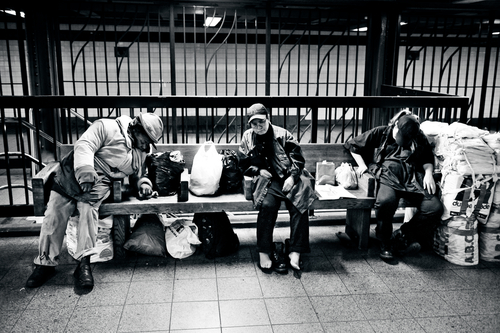The Supreme Court Set to Hear Public Camping Ban Dispute
On Friday, the Supreme Court announced its intention to examine a crucial issue that could redefine homelessness policies in the U.S. The court plans to hear a case involving cities implementing public camping bans through local ordinances. This case evolves from a legal dispute challenging local laws in Oregon barring residents from camping or sleeping on public property.
Key Takeaways:
– The U.S. Supreme Court plans to evaluate the legality of implementing public camping bans to tackle homelessness in cities.
– The case originated from a lawsuit against Oregon laws forbidding sleeping and camping in public spaces.
– The plaintiffs argue these laws breach the Eighth Amendment by unequally punishing the homeless citizens.
– California Governor, Gavin Newsom, supports increased focus on this matter in light of the growing homelessness crisis.
Case Background and Implications
The laws under scrutiny prohibit individuals from sleeping in public areas like city parks, sidewalks, and streets. This case could hold significant ramifications, particularly for Western states struggling to manage a burgeoning homelessness crisis. The forthcoming ruling is expected to hold wide implications for addressing homelessness nationwide.
Other High-Profile Cases on the Docket
Besides this case, the Supreme Court docket already includes high-profile cases involving abortion rights, administrative agencies’ power, and the eligibility of former President Donald J. Trump for Colorado’s Republican primary ballot.
The case’s crux lies in the argument by the plaintiffs’ attorneys. In 2013, according to legal documents filed, Grants Pass, a small southwestern Oregon city, began stringently enforcing regulations criminalizing sleeping on public property. Plaintiffs denounce this as an attempt to evict the city’s homeless residents to the neighboring areas.
Homelessness in Grants Pass
The alarming absence of homeless shelters in Grants Pass and the limited capacity of existing housing programs exacerbate the situation. Plaintiffs argue that the city’s sweeping regulations infringe on the Eighth Amendment prohibition of cruel and unusual punishment. They contend that the city is punishing its involuntarily homeless citizens merely for existing.
California Governor Advocates for Case
In a significant development, California Governor Gavin Newsom joined the discourse by filing an amicus brief, urging the court to consider the case seriously. Noting his firsthand understanding of the homelessness crisis, Newsom stressed the importance of addressing this issue.
California Homelessness Crisis
The homelessness crisis in California is severe, hosting approximately 171,000 homeless people or nearly one-third of the nation’s homeless population. Encampments are now a common sight in public areas across the state. Since six years ago, California’s homeless population has grown by an astounding figure of 40,000 people.
Need for Flexibility in Laws
In his brief, Newsom observed that while local governments work on long-term solutions, the existing laws provide the flexibility needed to address immediate health and safety threats caused by unsafe encampments. He emphasized that local laws play a critical role in moving people off the streets, connecting them with resources, and promoting public health and safety.
The Future of Homelessness Rules
The Supreme Court’s decision to hear this case highlights the urgency and complexity of America’s homelessness crisis. How the court decides to rule has the potential to reshape public policy on homelessness for years to come. This important development occurs in the backdrop of local governments and advocacy groups deliberating on effective remedies for one of America’s most pressing social issues.

